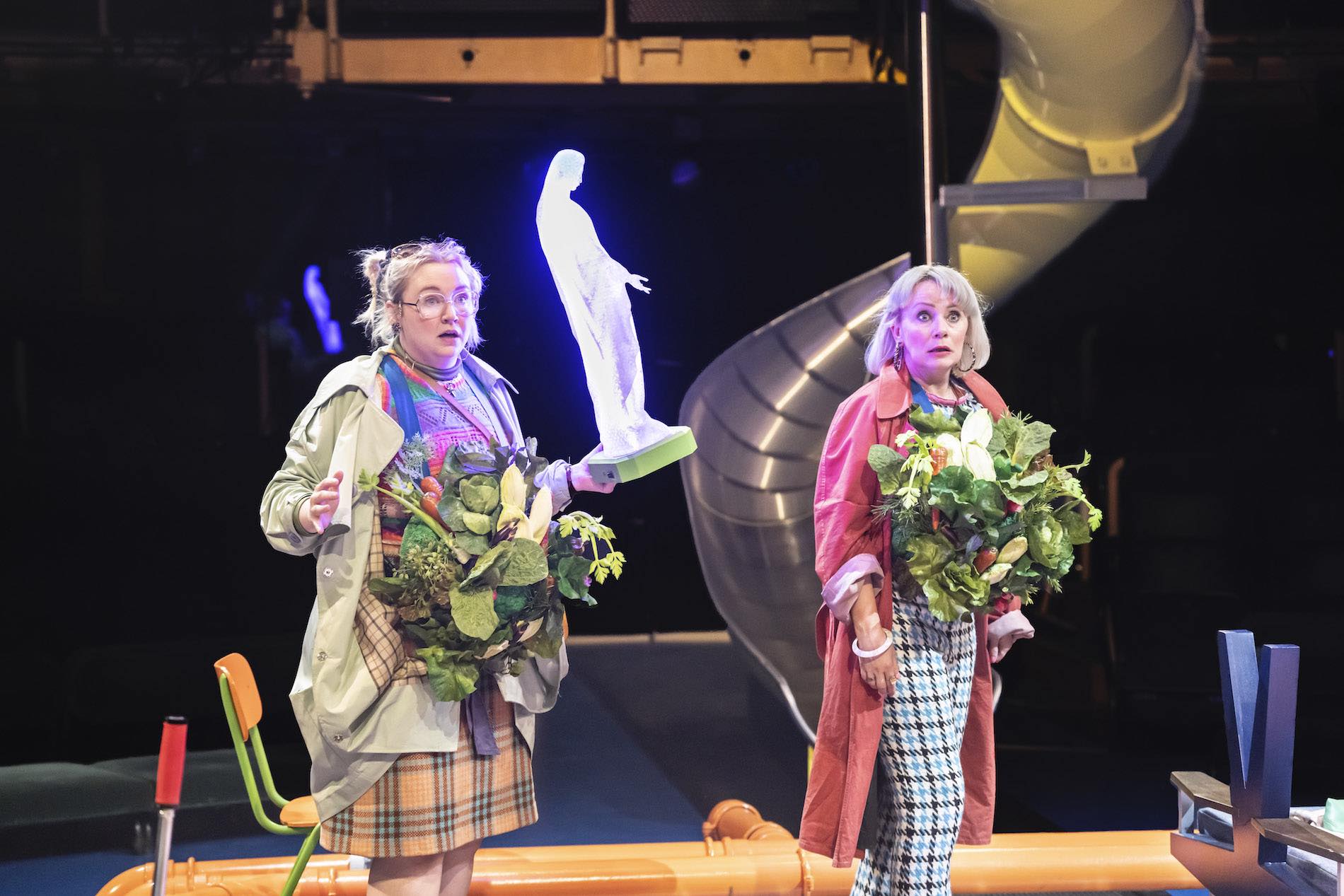
At times, Marieke Hardy’s adaptation of Dario Fo’s farce is like a game of sociopolitical bingo. It’s all here: train strikes, price inflation, untrustworthy authority figures, and a catalogue of other maladies are wheeled through. Written only three years ago, its resonances remain scorchingly hot, the landscape unchanged.
Change is, however, catalysed when a group of women refuse to pay their exorbitant grocery prices, stealing it instead. While they fretfully try to keep it hidden, stuffing it into a baby-shaped bump in their coats, their spirit of defiance slowly ripples across a society that begins to contest its conditions.
Cécile Trémolières’ set pitches us with the workers. It’s an industrial nest of pipes and tubes, as though the system has literally sucked them up and spat them out down the waste chute. Dayglo neon gives everything a prettified, consumerist sheen. But, where the original Sydney production was more naturalistic, this is semi-futuristic, rendering it hypothetical and notional when it could be an uncomfortably real, recognisable present.
It’s equally muted by the screwball careering around between man boobs and not affording rent. Hardy’s script screeches into decrying social injustice with freewheeling diatribes that breathlessly and bluntly reel off faults and villains. It aims for populist agitprop, with speeches engineered for murmurs of agreement and applause. But they’re pat and land safe blows on the usual punchbags while repeating that it’s always the decent, ordinary worker who suffers in the end. Its politics are so bald it becomes a blunt instrument that bludgeons you over the head.
Rather than being interleaved and enmeshed, spasmodic flurries only make it more heavy-handed and unconvincing. The same is true of the characters’ motivations. While Samantha Powers’ exaggerated outrage initially captures how Antonia exploits womanhood and whatever rhetoric will legitimise her protest, it becomes too flippant. Peppy and skittering about in her chunky heeled sandals, she’s so histrionic that she could just as feasibly be shoplifting and defying authorities as a bit of frivolous entertainment, rather than taking a principled stand.
The bleakness of her final resignation is somewhat offset by a salad wreath strapped to her bust. Equally hamstrung is any counterbalancing critique of chippy liberals and weaponised identity politics in the play, with the comic routines occasionally feeling like busy distractions.
The farce is, however, ably performed. Anwar Russell is enjoyably goofy as a range of varyingly camp, ineffectual police, even if its unimaginative pastiche adds to the show’s superficiality. There’s particularly good chemistry between the bumbling husbands: Roger Morlidge’s weary-voiced, heavy-footed Giovanni, and Gurjeet Singh’s agitated, scampering Luigi. It leads to a high point in the physical comedy of a mimed run on an imaginary conveyor belt.
The show’s verbal exchanges are weaker, with rambling speeches whenever Antonia improvises excuses to hoodwink the men. And other eccentricities also muddle and confuse. The many Italian references, including the characters’ names, are jarringly incongruous with the cast’s array of British regional accents and mention of our public services.
It may end with a call to arms, but this is a show that goes for belly laughs instead of gut punches.












